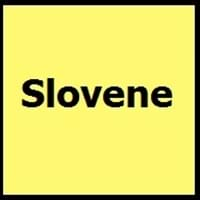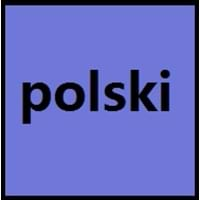Slovene and Polish
Countries
European Union, Slovenia
European Union, Poland
National Language
Austria, Croatia, Hungary, Italy, Slovenia
Poland
Second Language
Not spoken in any of the countries
Belarus, Czech Republic, England, Lithuania, Slovakia, Ukraine
Speaking Continents
Europe
Europe
Minority Language
Austria, Hungary, Italy
Belarus, Czech Republic, Hungary, Slovakia, Ukraine
Regulated By
Slovenian Academy of Sciences and Arts
Polish Language Council (Rada Języka Polskiego)
Interesting Facts
- The Freising Monuments is the oldest preserved records of written Slovene from 10th century.
- The first Slovene book was printed in 1550.
- Polish Language has many loanwords from Russian, Czech, French, Italian, Hebrew and German Languages.
- The earliest writings found in polish language was list of persons and place names, is dated to 1136.
Similar To
Serbo-Croatian
Czech, Slovak, Serbian Languages
Derived From
Not Available
Not Available
Alphabets in
Slovene-Alphabets.jpg#200
Polish-Alphabets.jpg#200
Writing Direction
Left-To-Right, Horizontal
Left-To-Right, Horizontal
How Are You?
Kako se imate?
Jak się masz?
Good Night
Lahko noč
dobranoc
Good Evening
Dober večer
dobry wieczór
Good Afternoon
Dober dan
dzień dobry
Good Morning
Dobro jutro
Dzień dobry
Sorry
Oprostite
Przepraszam
Bye
Nasvidenje
do widzenia
I Love You
Ljubim te
kocham Cię
Excuse Me
Oprostite
przepraszam
Dialect 1
Prekmurje Slovene
Kashubian
Where They Speak
Hungary, Slovenia
Poland
Dialect 2
Resian
Masovian
Where They Speak
Italy
Poland
Dialect 3
Styrian
Silesian
Where They Speak
Slovenia
Czech Republic, Poland
How Many People Speak
Not Available
Speaking Population
Not Available
Native Name
Not available
Polski
Alternative Names
Slovenian, Slovenscina
Polnisch, Polski
French Name
slovène
polonais
German Name
Slowenisch
Polnisch
Pronunciation
[slɔˈʋèːnski ˈjɛ̀ːzik], [slɔˈʋèːnʃt͡ʃina]
[ˈpɔlski]
Language Family
Indo-European Family
Indo-European Family
Subgroup
Not Available
Slavic
Branch
Not Available
Western
Early Forms
No early forms
Old Polish and Middle Polish
Standard Forms
Slovene
Polish
Language Position
Not Available
Signed Forms
Not Available
System Językowo-Migowy (SJM) (Signed Polish)
Scope
Individual
Individual
ISO 639 6
Not Available
pols
Glottocode
slov1268
poli1260
Linguasphere
53-AAA-f
53-AAA-cc
Language Type
Living
Living
Language Linguistic Typology
Not Available
Subject-Verb-Object
Language Morphological Typology
Fusional
Fusional, Synthetic
All Slovene and Polish Dialects
Most languages have dialects where each dialect differ from other dialect with respect to grammar and vocabulary. Here you will get to know all Slovene and Polish dialects. Various dialects of Slovene and Polish language differ in their pronunciations and words. Dialects of Slovene are spoken in different Slovene Speaking Countries whereas Polish Dialects are spoken in different Polish speaking countries. Also the number of people speaking Slovene vs Polish Dialects varies from few thousands to many millions. Some of the Slovene dialects include: Prekmurje Slovene, Resian. Polish dialects include: Kashubian , Masovian. Also learn about dialects in South American Languages and North American Languages.
Slovene and Polish Speaking population
Slovene and Polish speaking population is one of the factors based on which Slovene and Polish languages can be compared. The total count of Slovene and Polish Speaking population in percentage is also given. The percentage of people speaking Slovene language is Not Available whereas the percentage of people speaking Polish language is 0.61 %. When we compare the speaking population of any two languages we get to know which of two languages is more popular. Find more details about how many people speak Slovene and Polish on Slovene vs Polish where you will get native speakers, speaking population in percentage and native names.
Slovene and Polish Language Codes
Slovene and Polish language codes are used in those applications where using language names are tedious. Slovene and Polish Language Codes include all the international language codes, glottocodes and linguasphere.





